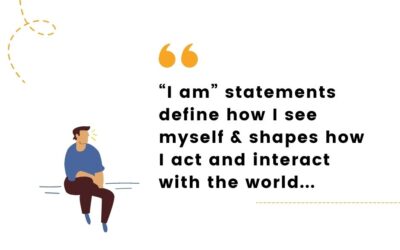We wait for many things in life. Our first attraction, our first date (or as is the modern term, our first hook up), our first kiss and then who knows where that waiting may end up?
Often, it’s the anticipation of waiting is either more fearful or enjoyable than the actual event.
And now, for many communities in certain parts of Australia, we are waiting again – and this time it’s for the floods.
We know the water is coming. We don’t know when or how much, but we know there will be heaps of it.
We read from the Bureau of Meteorology and other weather services about the potential amount of water and the consequence of damage to buildings, homes, crops and even townships.
I think waiting is always the worst. We feel like we’re in a state of suspended animation just waiting and wondering.
I’m quite the fan of history, and this waiting must feel like the “phoney war” they talked about that occurred just before World War II commenced in earnest.
The war had been declared with no action and all of a sudden – WHAM!! It was on.
So, how best to manage this waiting?
There are three strategies best categorised as preparation, mindset/emotional mindset and expectations management.
Preparation includes those things that people do naturally in preparation for such flood events – putting their furniture higher, moving their animals to higher ground, checking on their neighbours, and encouraging each other.
I watched an excellent video of the recent floods in Moree where the people being interviewed likened the feeling to that of a street party – people coming, helping each other prepare the premises, having a few beers, and even a BBQ.
In one scene, a few local larrikins raced their bikes through the water to see who got further!!
All good fun and a necessary part of the waiting process – the fun bit.
Of course, as always, dealing with these challenges is all about mindset and attitude.
Remember this is an act of God that affects everyone. This is not the universe’s personal attack on you.
Whole communities are affected, so do your best to not only help yourself but to help everyone.
Don’t play the victim – be the survivor and take action.
Make a choice to ensure your mindset is optimistic and active. Tell those people who advise you to “just be positive” to shove it where the sun doesn’t shine because action is what’s required.
Your mindset must be able to think and then do the things that will get you through this challenge and then allow you to thrive.
What actions to take?
As always self-care is important. Sleep, diet, physical activity, connectivity, mixing with good people – all those things that should be part of your usual strategy now needs to receive extra focus.
Develop a plan. Have this plan address the worst-case, best-case and most-likely case scenario. This allows your brain to process options – always plan for the worst and hope for the best.
It’s also about reaching out to those people who will help you in post-recovery. These are your advisors (both formal and informal) and can include banking personnel, financial planners, builders, agronomist, nutritionists – all those people who can help you get back on your feet and thrive.
Reach out to those people NOW. Besides the benefits of being ready to go, remember, the brain loves certainty, and consequently the brain loves a plan – develop a plan for your post-recovery circumstances.
Accept help – get over pride and work with government agencies such Centrelink and other organisations (like Red Cross and BlazeAid), and accept the services and support offered. This is the time to accept this help and be grateful.
Don’t do anything that threatens your or others’ personal safety. Don’t drive through flooded streets and roads. Be sensible.
This last category of managing expectations is both strange but really important.
From working with individuals through personal challenges and many communities that have gone through challenges such as floods, bushfires, and drought, people can feel a sense of abandonment and alone at times.
When the event is actually happening, the world’s eyes are on you – you’re getting media attention, your community is on television, helicopters are buzzing over your town etc.
But it’s an unfortunate fact that the news cycle is 24 hours, and I need to say to you that to those who aren’t affected directly, the crisis is over and they’ve moved on to the next drama.
It’s over for them, but you are still very much in the middle of it, and in the current situation, some are still waiting for the peak.
Block out this external noise (or lack of it) and concentrate on dealing with your present. Deal with what you can and focus on what you can control.
This lack of attention is no one’s fault really – just unfortunate collateral damage from the current media approach.
The other aspect of managing expectations is accepting that things are different and going to take some time to return to the situation you would like.
In certain situations, there will be infrastructure damage that may take years to get back to your pre-flood level.
I’m hearing it’s even difficult to get an insurance assessor to visit and assess the damage. This is what it is, and we just need to accept it and have a plan to address recovery management.
It is the waiting that gets you – but it’s the same for all those affected, so reach out to your community and help each other out. Focus on what you can control – even if that’s just watching larrikins racing their bikes through flooded streets!!






